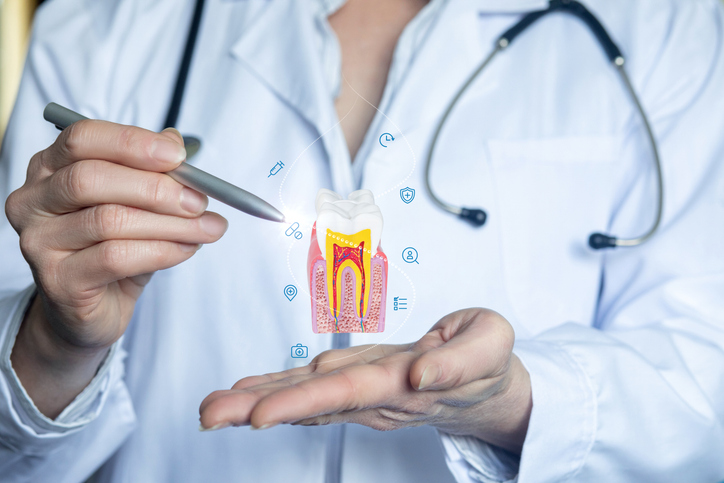Do Dental Implants Feel Natural?
Today, dental implants are deservedly considered to be the most sophisticated way of restoring missing teeth. They look great in the mouth and provide incredible comfort compared to other methods of dental restorations. But do dental implants feel natural? In this article, we discuss what you might expect to feel if you have one, several, or a full mouth of dental implants.
Do Dental Implants Feel Natural?
To better understand how dental implants will feel and function in the mouth, it is helpful to know how they look and work. A dental implant consists of a metal post (also called a screw) that is placed into the jaw bone during a surgical procedure. In a couple of months after the procedure, the implanted post fuses with the bone. Thus, it begins to act in a similar way to the roots of your natural teeth. Once the post is secure in the jawbone, your dentist will attach a dental crown to it. As a result, you get an artificial tooth that looks and functions like a natural one.
However, the main difference between a prosthetic tooth and a natural one is that the former does not have nerves. This means that it will not feel pressure, pain, or changes in temperature in the same way a natural tooth does. Also, a dental implant can not cause cavities or decay. If you have one or a couple of dental implants in your mouth, you will not feel much difference in your day-to-day life, especially once you adjust to the feeling of the dental implant in the mouth.
When it comes to the appearance of dental implants, they are indistinguishable from your natural teeth, as the shade and color of a dental crown can be closely matched to the rest of your teeth.
How Does a Full Mouth of Dental Implants Feel?
The way dental implants feel will most likely be different when you have a full mouth of dental implants. Typically, when you need to replace all of your teeth with implants, only several metal posts are placed in the mouth. For example, you can opt for the all-on-four option, meaning that your dentist will only install four metal posts in total. These several posts will support “bridges” of dental crowns.
The look of the full mouth of dental implants is similar to that of natural teeth, and other people will most likely not notice any difference. However, since all the teeth are artificial, you will not feel the same way as when you have natural teeth. As we mentioned before, artificial teeth, which do not have nerves, can not respond to external factors in the same way natural teeth do.
Still, a full mouth of dental implants will feel much more comfortable than traditional dentures. The reason for this is that the implants are stable and secure in the mouth and do not move, rub, or slip like dentures might. Also, dental implants provide up to 90 percent of the natural bite force, while dentures can guarantee only up to 20%. As a result, with the full mouth of dental implants, you will be able to enjoy a much wider variety of foods with confidence and comfort.
Other Reasons to Choose Dental Implants
In addition to such advantages as looking natural, having a reliable performance, and providing comfort in daily use, dental implants have several other pros:
- Dental implants can last you a lifetime, with only the crown needing a replacement every 7 to 10 years.
- Dental implants stimulate the jawbone in a similar way to the roots of your natural teeth. Thus, they prevent the process called bone resorption—the shrinking of the bone due to tooth loss. Preventing bone resorption, dental implants also prevent changes in the structure of your face in the jaw area.
- Dental implants do not use healthy surrounding teeth for support, thus not causing any damage to them. Other types of dental restorations, such as dental bridges, do rely on the surrounding teeth for support and might cause the teeth to wear out out over time.
- Dental implants occupy the gap where your natural tooth used to be, thus preventing the remaining teeth from moving into this space, changing the way your smile looks.
Get Dental Implants at Smiles of Arcadia
Improve the comfort and quality of your daily life by getting dental implants at the Smiles of Arcadia dental office. Do not hesitate to call us today and make an appointment with an experienced dentist who will assess your case and offer you a plan of treatment best suited to your goals and considerations.

